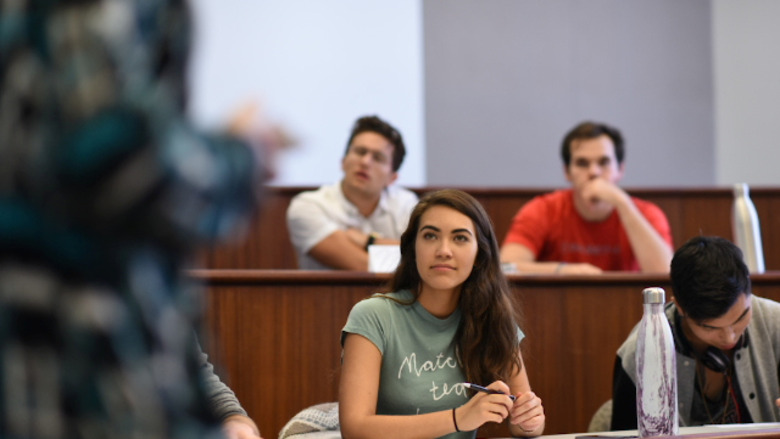One-credit course topics
One-credit courses all fall under the catalog number CPSC 298 or CENG 298. (These
are the classes you should look for if you would like to take a one-credit course.)
But each semester, different topics are offered. Below is a list of all topics. Please
note that not all topics will be available every semester.
Assembly Language
You will become proficient in a contemporary assembly language in order to gain insight
into algorithms at the instruction level.
Biomedical Product Design
This course provides an overview of engineering design principles for biomedical devices.
Specific anatomy applications will be utilized to demonstrate the cross-functional
skills used in risk-managed engineering environments, such as when creating surgical
and pharmaceutical commercialized products.
C++ Programming
In this course, you will study the C++ programming language, including essential topics
for object-oriented programming: inheritance, polymorphism and memory management.
Cloud Computing
Learn to leverage popular cloud computing frameworks — such as AWS and Azure — to
understand the power of on-demand computing and storage. These systems can be managed
over the Internet and do not require an investment in physical computing infrastructure.
Consulting Best Practices
In this course, you will delve into the process of becoming a technical consultant,
including key tools used by this role for project management (creating budgets, developing
statements of work and understanding end-user requirements).
Data Visualization for Business
You will learn to use Tableau, generating reports and visualizations to effectively
communicate patterns in data when making informed business decisions.
Fundamental Electronics
You will learn the basics of electronics and electricity through hands-on design and
implementation of basic circuits, including techniques for breadboarding and soldering.
Heroes of Computing
This course offers a survey of the scientists and engineers who pioneered the computer
science and engineering fields.
Heroes of Computing: The Living Legends
Despite the ubiquity of computing in contemporary society, computer science and engineering
are relatively young fields. This course studies the contributions of pioneers in
these areas who are still actively engaged with forward progress.
Heroes of Computing: Minorities in Computer Science
This course allows you to study the groundbreaking contributions of computer scientists
from groups that have been traditionally underrepresented within engineering.
Innovation out of Failure
Though we tend to celebrate the “wins,” most of the great accomplishments in science
and engineering are the result of learning to persevere in the face of failure. You
will study how to view failure as the ultimate learning opportunity.
Intro to *nix
Through this course, you will become proficient with the Unix/Linux operating systems’
multitude of command line tools.
Machine Learning Grand Challenge
This course partners students with a corporate sponsor to tackle a real-world machine
learning problem. You will develop solutions that will be immediately implemented
in an industry setting.
Nanotechnology
In this course, you will explore the foundations of nanomaterials — notably, their
applications and microscopies as tools for their characterization.
Road to Research
You will learn what it takes to build an academic research lab from the ground up,
gaining insight into the funding, recruiting and publication processes. They will
also hear research talks from current faculty members actively recruiting undergraduate
research assistants for their labs.
R Programming
You will gain proficiency with the R programming language, a modern language that
is widely used in statistical computing and data analysis.
Salesforce
This course builds your familiarity with Salesforce, one of the most popular contemporary
suites for customer relationship management.
Trusted AI
How can engineers ensure that artificial intelligence users feel confident in their
system’s ability to perform robustly, especially in environments where the cost of
failure is catastrophically high? This course provides an overview of the technical
aspects of AI that must be addressed to achieve these aims.
Unity Multiplayer and Networking
Throughout this course, you will gain valuable hands-on experience integrating multiplayer
and networking capabilities into Unity-based games.

